Top Reasons You Are Coughing After Eating
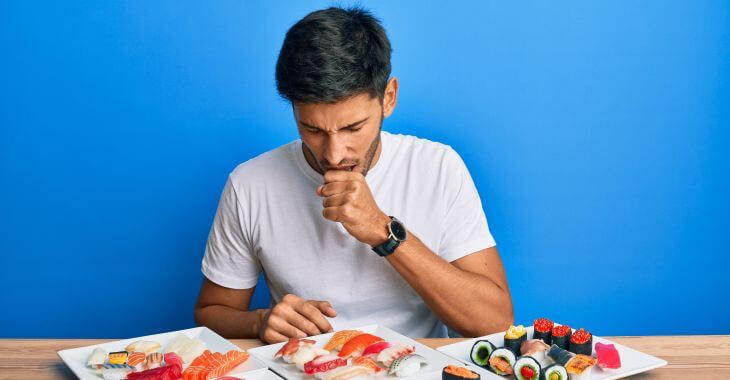
Do you have phlegmy coughing after eating? It is more common than you think. There are several health reasons you may have phlegm after eating, causing you to cough or clear your throat. While many causes are mild medical concerns, some may require treatment to protect your health.
While coughing is usually used to clear substances from your lungs or airways, it can also be triggered by eating. The esophagus and airway into the bronchial tubes and lungs are both located at the back of the throat. It is very common for swallowing and other digestive actions to cause irritation to the airway.
Why Do I Get Phlegm After Eating?
Whether you only are coughing after eating occasionally, or you are coughing mucus after eating every time, you want to identify the cause. Many times, phlegm after eating is due to specific foods that are triggering a reaction, but it can also be due to an underlying health condition that requires medical attention.
Phlegm in the throat is created to expel irritants. If the action of swallowing or the foods you ate irritate the throat, your body may produce phlegm as a reaction to relieve the irritation. The excess phlegm alone can make you cough, whether or not there is a substance in your throat.
If you are coughing after eating, it is important to pay attention to when it happens and if there are any common factors. You may only cough or have phlegm after eating certain types of foods. It is important to note the type of cough, how long it lasts and other symptoms that occur at the same time.
- Acid Reflux Cough
- Acid reflux or heartburn occurs when the sphincter muscle between the stomach and esophagus does not keep stomach acid out of the esophagus. The acid can irritate the esophagus, which can result in the need to cough. Other symptoms you may feel include heartburn, sore throat or a sour taste in your mouth.
- GERD or LPR
- Gastroesophageal reflux disease, or GERD, is a form of severe acid reflux. This can result in coughing after eating, but it can also cause serious damage to the esophagus that can lead to risk for cancer. With GERD, you may also experience heartburn at least twice a week and have trouble swallowing.
- Laryngopharyngeal reflux (LPR) is a type of acid reflux and can occur with or without GERD. This type of acid reflux disease allows acid to regurgitate up into the larynx or nose. If the stomach acid enters the larynx, it can make you choke or cough, even when you are sleeping.
- Food Allergies
- One of the most common causes of coughing mucus after eating is some type of allergic reaction. Some are true food allergies that cause wheezing or coughing within two hours after eating specific foods. If you have trouble breathing, it is important to seek immediate medical attention, as you may be experiencing anaphylaxis.
- Asthma Cough
- Asthma occurs when a trigger causes the bronchial tubes to tighten, restricting breathing. Asthma attacks will commonly result in wheezing and coughing to open the airways. Certain foods can be triggers for asthma attacks, especially foods or beverages with sulfites.
- Respiratory Illnesses
- Any infections or illnesses in the respiratory system can irritate the throat. Sinus infections, bronchitis, pneumonia and other respiratory infections can cause inflammation in the throat tissues. If you are coughing mucus after eating, but also have a respiratory infection, that could be the cause.
- Aspiration pneumonia can be a result of GERD, LRD or other conditions that allow food particles to enter your lungs. This can result in a bacterial infection that can cause coughing phlegm after eating. If you have a wet cough after eating, especially with a fever, you may have aspiration pneumonia.
- Dysphagia
- If you have trouble swallowing, it is called dysphagia. This can feel like a lump in your throat, and it often results in coughing after eating. Dysphagia can be caused by conditions like GERD, asthma, LRD and allergies, but it can also be a symptom of more serious health problems like tumors or cancer.
While an occasional lump in the throat could be due to many throat or respiratory issues, if you continue to gag or cough while swallowing, see your doctor.
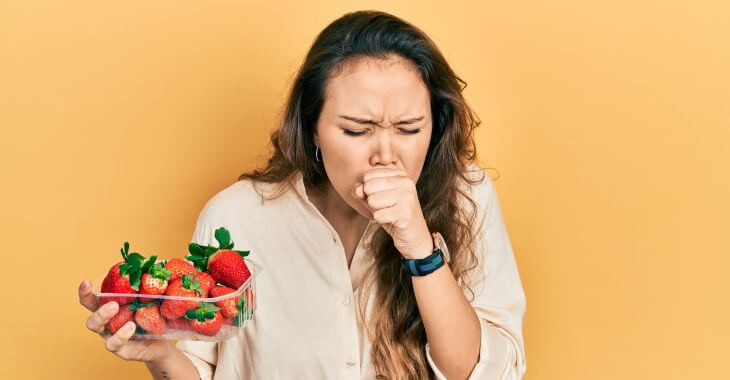
When to See a Doctor for Coughing After Eating
Occasional coughing after eating occurs for many people, but if you see a pattern, you should contact your doctor. If you notice wheezing, shortness of breath, fever, difficulty swallowing or pain, you should have your condition checked out to determine the exact cause and best treatment.
There are many reasons you may experience coughing, mucus or phlegm after eating. In most cases, it is triggered by food you ate or an irritation of the throat tissues. To find out for sure, you should schedule an appointment with your doctor to determine the best treatment for controlling your cough.
The information provided on this website, including text, graphics, images, and other materials, is intended solely for informational purposes and should not be used as a substitute for professional medical advice, diagnosis, or treatment.
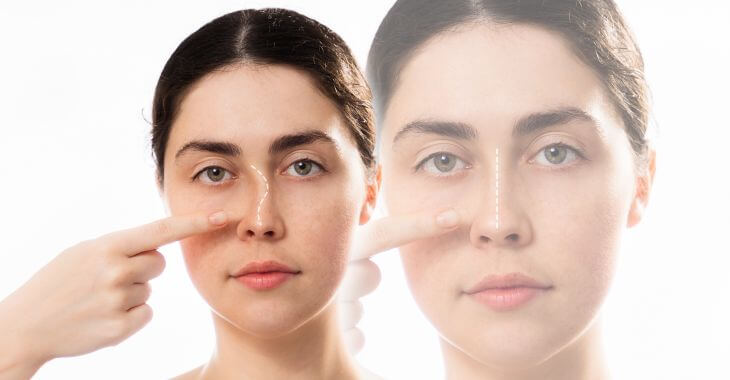
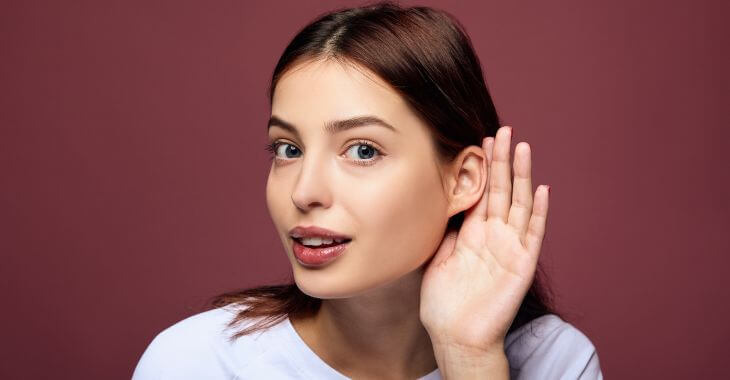
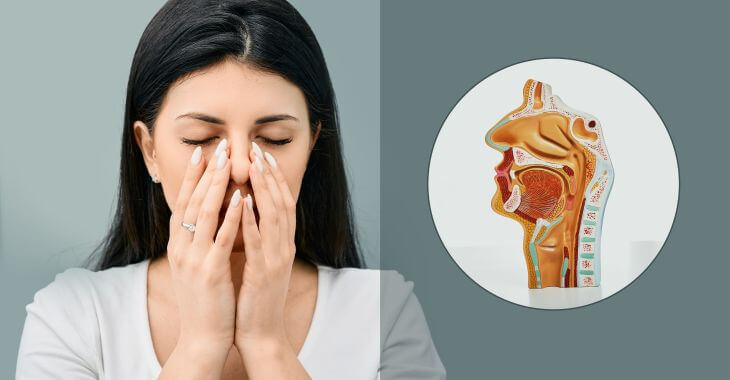
)